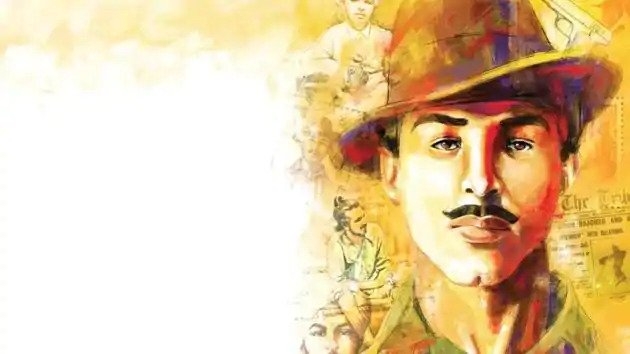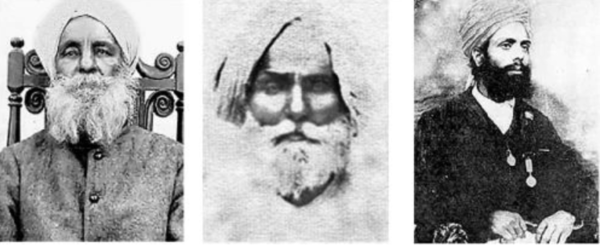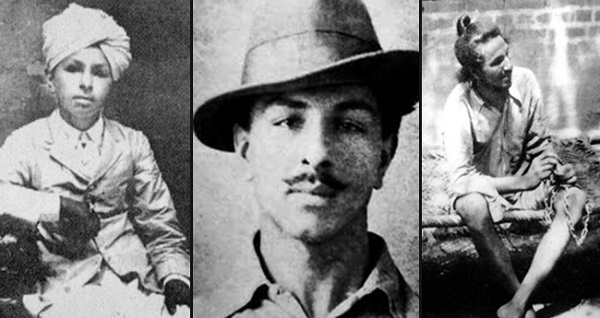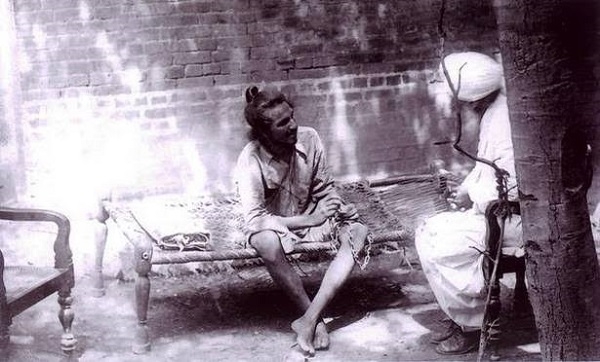Jara Yaad Kare Qurbaani! Revisit lesser-known stories about Shaheed Bhagat Singh
Total Views |
Revolution is an inalienable right of mankind. Freedom is an imperishable birthright of all- Bhagat Singh
India has witnessed many revolutions for decades - be it during ancient India or the era of Independence or modern India. Speaking of it, one such revolutionary figure who made uo the history was Shaheed Bhagat Singh. Though he died young, only 23 years of age, his actions left such a strong impact that inspires many youths across India to take the revolutionary path in order to serve the nation. He was the epitome of courage and revolution.

Born on September 28, 1907, in Punjab province, now in Pakistan, the freedom fighter is referred to as Shaheed Bhagat Singh. Today, on Shaheed Diwas or the Martyr's Day in India, let us revisit some lesser-known stories about him.
1. Singh was born into a family that had been involved in revolutionary activities against the British Raj. He was descended from a family of Khalsa Sardars, who had fought in Maharaja Ranjit Singh’s army against the Pathans. His grandfather Sardar Arjun Singh chose to oppose the British and that nationalism in a way came down to Bhagat. Ajit Singh, who was his paternal uncle, took an active part in the agitation led by Lala Lajpat Rai, and he was imprisoned under the draconian Regulation III of 1818. Along with him, Bhagat Singh’s father Kishan Singh, and his other uncle Swaran Singh were also arrested for the same agitation. Bhagat was born on September 28, 1907, coincidentally, at the same time his uncle Swaran Singh had died in prison. In short, the nationalist spirit was something he had inherited from his family, his ancestors.

Bhagat Singh's Father, Grandfather and Uncle
2. April 13, 1919, when the Jallianwala Bagh massacre took place it disturbed every Indian, sending shivers down the spine. However, for a 12-year-old Bhagat, the barbaric act wherein hundreds of Indians were killed, it hit him hard as he collected the blood-soaked mud of the Bagh in a glass bottle and worshipped it daily. This acted as a reminder to him of what his ultimate goal was.
3. Singh was a great actor and took part in several plays. He had garnered praises from his teachers and fellow classmates for his performances in ‘Rana Pratap’, ‘Samrat Chandragupta’and ‘Bharata-durdasha’. This inborn talent of his later helped in escaping from the British police. When the British police were still on the lookout for Singh and Rajguru after both had killed Saunders, Singh acted as Durgawati Devi's husband and was dressed in western attire. He carried Durgawati Devi's sleeping child while Rajguru carried their luggage as their servant. All of them, then, boarded a train to escape to Calcutta deceiving the 400 policemen at the station.
4. During the same incident, being a Sikh, he shaved off his beard and cut his hair to avoid being recognized and arrested for the killing. He managed to escape from Lahore to Calcutta. Such was his passion to fight for freedom for his country!
5. On April 8th, 1929, when he and Batukeshwar Dutt threw bombs at the Central Legislative Assembly in Delhi, Singh shouted "Inquilab Zindabad". He had coined the iconic phrase, "Inquilab Zindabad" which later became the war-cry of the Indian Independence Movement. He even threw copies of leaflets in assembly quoted as saying, "It takes a loud noise to make the deaf hear".

6. Singh had always known the importance of the Hindi language. In 1923, he had written an article named “The Problem of Punjab's Language and Script”. He said, "Muslims lack a great deal of Indianness, so they do not understand the importance of Indianness in all India and prefer the Arabic script and the Persian language. The importance of being one language of all India and that too Hindi, they never understand, so they keep on praising their Urdu and sit on one side."

7. It is well known that Bhagat Singh was a well-read man with an unquenchable thirst for knowledge. But not many know that he could use five languages efficiently- English, Hindi, Punjabi, Urdu, and surprisingly, Bengali. According to a list of traced books, probably read by him, he had read about 143 books under the category of foreign literature (Irish, British, European, American, Russian) and 169 books of Indian origin.
8. Bhagat Singh and his comrades were jailed for JP Saunder's killing and Assembly bomb blast case. During his stay in jail, he demanded better treatment for the prisoners. The pathetic condition of the jail prompted them to go on a hunger strike. Few of his comrades called off the hunger strike after 60 days but not Bhagat Singh. His father persuaded him to call off the hunger strike. So, finally, on 5th October 1929, they called off the strike. It was the 116th day of the strike thus surpassing then record of 97 days set by an Irish revolutionary.
9. During the course of this hunger strike, Bhagat Singh had to be carried to the court handcuffed on a stretcher: he had lost 14 pounds (6.4 kg) weight from 133 pounds (60 kg) before the strike.

At the age of 20 years first police arrest 1927
10. To prevent a public reaction, Singh along with Sukhdev and Rajguru were hanged to death 11 hours ahead of the original time. Their hanging was scheduled on 24 March 1931 but they were hanged on 23 March 1931 at 7:30 pm in Lahore jail. The jail authorities then broke the rear wall of the jail and secretly cremated the three martyrs under cover of darkness outside Ganda Singh Wala village, and then threw their ashes into the Sutlej River.
In such a short life of struggle, his actions have left a strong impression that it will always be remembered and inspire many to take the path of serving the country and the countrymen!
Today being Shaheed Diwas, which is celebrated every year on March 23, their sacrifices - Shaheed Bhagat Singh, Sukhdev Thapar, and Shivaram Rajguru - lost their lives during India's struggle for independence from British rule. Their contributions to the freedom struggle are nothing less than that of an Armed Forces officer.
